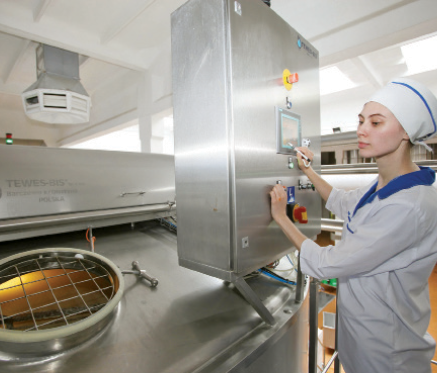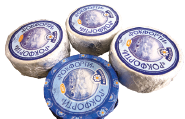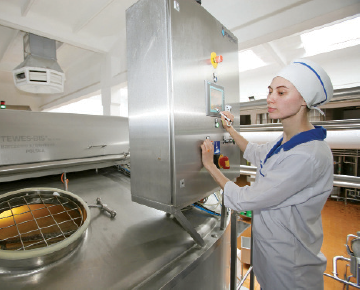Mozzarella, Ricotta, Mascarpone, Bryndza, Feta and Sulguni cheeses are all now produced and sold in Belarus, thanks to new technologies adopted from abroad. Our country is among the top-five suppliers of cheese worldwide, with 70 percent of production exported. However, per capita, Belarusians consume just 4.3kg annually: around 1kg less than in Russia and six times less than the French. A recent seminar at the Institute for Meat and Dairy Industry, gathering cheese-makers from all over the country, has declared that the branch should grow: in volume, quality, and assortment.

Belovezhskie Syry enterprise in Kamenets District’s town of Vysokoe
We currently produce about 140,000 tonnes of cheese, with capacity for up to 200,000 tonnes. Between January and August, production increased 10 percent on that of the same period in 2013. Next year, 1,100 new and modernised farms are to launch, considerably increasing production volumes. The first wave of modernisation began 12 years ago, with the second planned 2-3 years later. Naturally, technological development is crucial, making cheese of better quality and at less cost. Creating a wider assortment is a different challenge.
 Oleg Dymar, the Deputy Director for Science at the Institute for Meat and Dairy Industry, explains, “Belarus enjoys sufficient food provision; now we need variety — especially more soft cheeses. Only one factory makes blue cheese: 1 tonne per day is too little. Also, we lack Cheddar, which is essential for success on foreign markets. We need Camembert cheeses and those with white mould, lacking only the technology. However, our institute is ready to deliver this to any interested enterprise.”
Oleg Dymar, the Deputy Director for Science at the Institute for Meat and Dairy Industry, explains, “Belarus enjoys sufficient food provision; now we need variety — especially more soft cheeses. Only one factory makes blue cheese: 1 tonne per day is too little. Also, we lack Cheddar, which is essential for success on foreign markets. We need Camembert cheeses and those with white mould, lacking only the technology. However, our institute is ready to deliver this to any interested enterprise.”Belarus currently manufactures over 200 cheeses, of which 120 are hard or semi-soft. However, only two varieties are widely available: Russian and Dutch. The manufacture of Belarusian Gouda, Edam, and cheeses like Parmesan, as well as Klinkovyi, Adygei and dessert cheese is growing but there is still far to go. Enterprises also need to arrange such logistics as ripening, cutting and packaging. A network of small cheese dairies may be created, with certain resources pooled — and cheese-making training could become popular.











